Retiring 90% of our Coal Power Plants would Save Money - Michelle Solomon, Energy Innovation3/1/2023
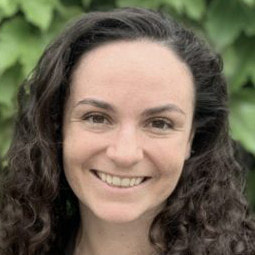
Energy Innovations, a San Francisco energy think tank, has published recent reports that show that clean and renewable energy such as wind and solar is surprisingly cheaper than over 90 percent of the coal power plants that are operating today. Wind and solar have been dropping in price and the cost of producing this energy has also dropped but this report shows that these renewable energy sources make keeping most of the remaining coal power plants open not economically or environmentally sound. Michelle Solomon is a Senior Policy Analyst in the Electricity program at Energy Innovation, working to accelerate the transition to a clean, affordable, and equitable electricity sector in the United States. We’ve invited her to talk about their recent publication of the third edition of their report - Coal Cost Crossover – which argues that over 90% of coal-fired power plants in the U.S. could be replaced by renewable energy generation at a net cost savings. Prior to joining Energy Innovation, Michelle earned her Ph.D. in materials science and engineering at Stanford University, where she studied nanoparticles with applications in purifying chemicals for use in medicine and the environment. During graduate school, she also pursued an interest in energy policy and spent a summer working on electric vehicle policy at the California Energy Commission. After graduating, she transitioned full-time into policy as a Congressional Science and Engineering Fellow. As a fellow, she had the chance to work on energy and environment policy for Senator Ed Markey, focusing on a wide range of issues spanning environmental justice to electric vehicle charging. Michelle holds a Ph.D. and an M.S. from Stanford University in materials science and engineering. She also completed her B.S. in physics at Boston College. Further Reading: 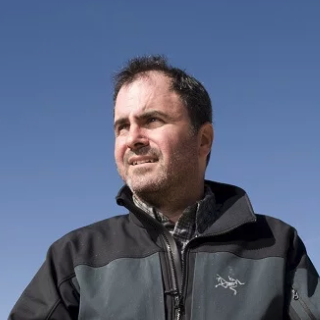
In this climate fight will Big Fossil Fuel, it is hard and rare to have a clear-cut victory. The last time we did a podcast episode with Mike on 7/12/22, his group was fighting to prevent a closing coal-based power plant in Farmington, New Mexico from reinventing itself to keep open using the questionable technology of Carbon Capture and Sequestration (CCS). This was described a June 29, 2022 High Country News article. A company named Enchant led this effort with the backing of financial groups to force this unproven technology through to keep the highly polluting plant open. Once they could not raise enough money privately, they were trying to get federal money to keep the plant going. However, this did not work out and the activists like Mike kept pushing to stop it. Last month, Enchant abandoned its efforts. We wanted to have Mike back on the program to explain what led to the closing of this plant for good and to explore and celebrate the loss of one less coal power plant.
Mike points out that this project was billed as a “demonstration project”, intended to show the potential of carbon capture and sequestration as an approach to combatting climate change. Back in December of 2021, the General Accountability Office (GAO) issued a report titled, “Carbon Capture and Storage: Actions Needed to Improve DOE Management of Demonstration Projects” which showed essentially no success among demonstration projects. Of eight projects, for which we, as taxpayers, paid $684 million, only one achieved operational status. That one plant operated for only three years, closing due to economic infeasibility. Eisenfeld questioned when DOE and companies promoting these projects will be held accountable for this poor track record. Within the aforementioned report, DOE was described as addressing this by creating a dedicated Office of Clean Energy Demonstrations. After waiting nearly a year, the Biden administration appointed David Crane, the CEO of NRG, the company in charge of Petra Nova, one of the failed carbon capture projects described in the GAO report. Climate Money Watchdog will be following up on this and other appointments relevant to environmental spending. 
Kayley Shoup is an activist with the Citizens Caring for the Future, an environmental group that is affiliated with New Mexico Interfaith Power & Light in Carlsbad, New Mexico. When she moved back to her hometown, she became alarmed at the increase of pollution from the nearby expanded oil and gas fields of the Permian Basin, and is determined to do something about it. Recently, a NASA satellite from its EMIT program, which is designed to measure and characterize mineral dust sources to find new minerals, found a massive methane leak near the Carlsbad gas and oil fields. Kayley describes how her organization works to inform their community using data from a wide range of sources, including NASA and other non-profits such as Earthworks.
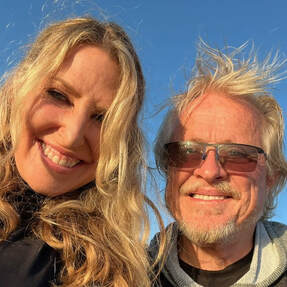
Dr. Steve McDaniel and Beth McDaniel, JD founded and run Reactive Surfaces, and intellectual property firm that develops and patents paints that do more than turn buildings attractive colors and protect them from the elements: They react to the atmosphere in intentional and desirable ways. They are currently in the running to win the most valuable X-Prize contest ever by creating a paint that captures CO2 from the atmosphere more simply, cheaply and scaleably than any direct air carbon technology before it.
The McDaniels founded Reactive Surfaces in 2001 in response to the events of 911. They wanted to know if they could stabilize an enzyme in a coating to protect surfaces against a chemical weapons attack. This original technology is called WMDtox, and it works to decontaminate organophosphorous nerve gases virtually on contact. From there, they have developed other various functional platform technologies using non-toxic bio-based organisms, such as self-cleaning coatings and coatings that are antimicrobial and antiviral. Carbon Capture Coatings have the power to significantly reduce carbon dioxide in the atmosphere, thereby lessening the impact of global warming. Carbon Capture Coatings are bio-engineered such that, when exposed to sunlight, they capture and fix atmospheric carbon dioxide. These coatings support living cells capable of carrying out photosynthesis, the process by which Nature captures and fixes atmospheric CO2. Further Reading: · Carbon Capture Coatings: Next Generation Biomimetic Coatings for Carbon Capture & Removal · Carbon Capture Coatings: Can Paints and Coatings Save Humanity? Support the show 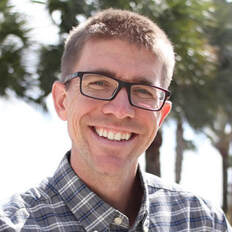
Hurricane Ian rocked southwest Florida with all the damage and years of rebuilding in plain sight on our television screens. It is becoming obvious that this is not the last of huge killer hurricanes as the waters of the Gulf of Mexico and other large bodies of water heat up. Southwest Florida is planning to rebuild with scientists and city planners exploring ways to make towns more resilient for the next hurricane. They should start by looking at a planned community right in their backyard called Babcock Ranch who survived a direct hit yet roofs stayed on, there was minimal flooding, and the electricity never failed. Ryan Foelske a Carbon Free Electricity Program manager at RMI (previously the Rocky Mountain Institute) decided to put his money where his mouth is by buying a home in Babcock Ranch, a community designed to both reduce human contribution to climate change and to be more resilient to the effects of climate change, especially hurricanes. He tells us about his experience weathering hurricane Ian. Prior to joining RMI, Ryan worked at Deutsche Bank and Brookfield Asset Management as a buy-side equity analyst specializing in global regulated utilities and other publicly listed infrastructure companies. He built financial models, understood and quantified risks, and sought benchmark-beating returns for investors. In addition to his company coverage duties, Ryan helped develop the modeling framework, standardized and aggregated data outputs, and worked on index construction and inclusion. As we discuss in the episode, resilience is an area of extensive funding under the Infrastructure Investment and Jobs Act and the Inflation Reduction Act. Babcock Ranch has not received any funding under these pieces of federal legislation. Nevertheless we think its resilience measures are worth considering as background for other projects that may receive such funding in the future. For more information... 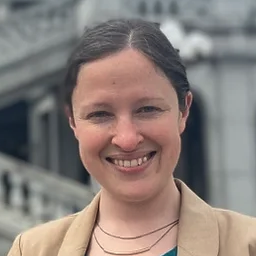
While pollution mitigation and control is vital to the environment, scientists are finding more and more problems for the humans that live near polluting corporate sites. Unfortunately in the name of jobs and profit, companies have produced pollution while ignoring or hiding the human health from their work, often producing what is known as "sacrifice zones" -- areas where the pollution is dangerous for people who often cannot leave. The Environmental Health Project has taken on the difficult job of using health science discern the short and long term effects of gas fracking and plastic production on local populations. On this podcast episode, we welcome Alison Steele, who tells us the good, the bad and the ugly of trying to help communities protect their health from the perils of corporate practices that could affect these communities for generations. Alison L. Steele, MBA, is the Executive Director of The Environmental Health Project (EHP), a nonprofit public health organization that assists and supports residents of Southwestern Pennsylvania and beyond who believe their health has been, or could be, impacted by shale gas development and other polluting industries in the area.. Alison earned her undergraduate degree in physics from Drew University in Madison, NJ and her MBA in Sustainable Business Practices from Duquesne University in Pittsburgh, PA. As part of her graduate work, Alison studied sustainability tools and practices used by leading companies in Europe, performed consulting services for large Pittsburgh-area companies, and published research on organizational behavior techniques used to aid adoption of sustainability initiatives. Prior to starting at EHP, she led policy and education efforts at Conservation Consultants, Inc. and developed the company's flagship grassroots community engagement program, which focused on advancing home health and energy efficiency in low-income Pittsburgh neighborhoods. She joined EHP at the beginning of 2020, and since then, she and her team have been taking advantage of our increasingly virtual world to extend their reach as they work to defend public health in the face of shale gas development. Some links for further reading:
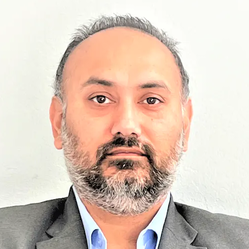
Ever wonder what will happen to all those EV, home, and main batteries will go after they start to wear out? Most people don't think about how big a job it will be to recycle or repurpose them and reuse their materials. Dr. Singh has started a new company, Relyion, to help solve that problem. Dr. Surinder Singh’s distinguished career has focused on advancing and incubating technologies that address climate emergency with a focus on fundamentals of science, systems engineering, and business models. He is spearheading Relyion Energy Inc’s strategic business development to create second-life sustainable solutions for Lithium-ion batteries. Previously, Dr. Singh worked as Director of Engineering and Center of Excellence Leader for NICE America Research (that’s the National Institute for Clean and Low-Carbon Energy), an incubator for China Energy (CE), and a program leader at General Electric. China Energy is the world’s largest overall power producer and renewable power producer by assets. He utilizes system-level thinking to address climate change via clean energy technology developments. He has led initiatives funded by Defense Advanced Research Projects Agency (DARPA), Department of Energy, General Electric, NICE, and others on low-carbon technologies such as alternative fuel production for transportation with low greenhouse gas emissions; carbon capture and storage (CCS) including direct air capture and Bioenergy with Carbon Capture and Storage for decarbonizing the power sector, biofuels and biochar production, fuel cells, hydrogen, and energy storage. He has led multi-million-dollar programs, developed partnerships with renowned universities and technology developers, and developed calls for proposals for funding programs. Dr. Singh is mentoring startups in Climate and Energy at Breakthrough Energy, Third Derivative/New Energy Nexus, On Deck, and STEP-TIET Venture Capital and Private Equity Principals Mentor. He has led multiple cross-functional and cross-organizational teams with chemical, mechanical, electrical, electrochemical, chemists, and material scientists backgrounds. He is a seasoned executive who has authored and co-authored 11 publications, 1 book chapter, and more than 100 technical reports and holds more than 40 patents granted and pending in ClimateTech. His scientific work has been extensively cited. He is also an editor for a renowned scientific journal Sustainable Materials and Technologies. He has a Ph.D. from University of California at Riverside and BE from Thapar Institute. He is cited in Fortune ' s “Unstoppable World’s Business Minds” and “Are Second Life EV Batteries Game Changers for Microgrid Owners and the Grid?”
In 2005, he co-founded The Nakwatsvewat Institute, Inc., a Native American nonprofit organization that provides alternative dispute resolution services and support for tribal governance, justice, and educational institutions. His book Railtown on the history of the modern Los Angeles Metro Rail system was published by University of California Press in January 2014. Ethan is also a regular host of the weekly call-in radio show “State of the Bay” on the San Francisco NPR affiliate KALW 91.7 FM, airing Monday nights at 6pm PT.
This episode is focused on the California Environmental Quality Act (CEQA), which was passed at roughly the same time the National Environmental Policy Act (NEPA). They were signed by Republican icons Ronald Reagan and Richard Nixon respectively. Mr. Elkind speaks on topics including:
Climate Money Watchdog founders Dina Rasor and Greg Williams recap our first twenty episodes. We started this podcast before most of the federal and state climate money began to flow by interviewing people who have looked for fraud in government spending for years. Then we have interviewed people who have scientific or political organizing background to hear their stories on what will or won't work in this race for climate and environmental mitigation. We are going to start moving in the direction of helping inside sources bring forward their knowledge of ongoing fraud. If you know about fraud in a climate program, please contact us. If you know about fraud in a climate program, please contact us safely at our website! If you have a topic you would like us to cover in a podcast episode, please send us an email. In the past 20 podcast episodes, we have covered such issues as:
Today we’re joined by Jenn Tenny, Communications Manager for the MCE (originally Marin Clean Energy), a relatively new kind of government organization called a CCA, which stands for Community Choice Aggregation. CCA’s allow individual consumers to choose where they get their electricity, even if it’s delivered over transmission lines that are owned by a single, monopoly utility company.
As a journalist and am MCE customer, Dina Rasor followed MCE's progress for many years, including writing an article about them in Truthout in 2014. As MCE’s Communications Manager, Jenna works to share messages of MCE’s mission and achievements in the community through various public engagement and press opportunities. These initiatives include not only making renewable energy more available to consumers, but also providing assistance to individuals installing more efficient appliances such as heat pumps and LED lighting, as well as reducing power usage during peak demand hours through their 4 to 9 program. Prior to her time with MCE, Jenna worked at the California Academy of Sciences and the Bronx Zoo as a public educator. Jenna has a B.S. in Marine Biology from the University of California at Santa Cruz and an M.A. in Climate and Society from Columbia University. |
AuthorsDina Rasor Archives
June 2024
Categories |
© 2021 Climate Money Watchdog Inc., a Project of the Media Alliance, a tax-exempt 501(c)(3) Charitable Organization
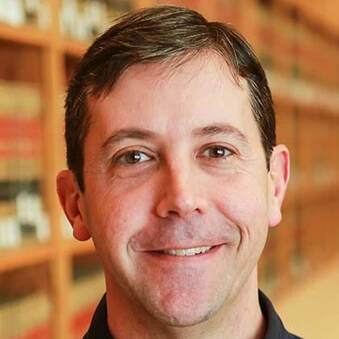
 RSS Feed
RSS Feed